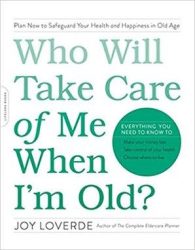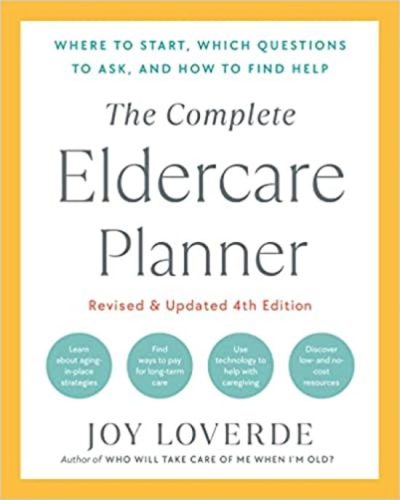Let’s say your mom got scammed by someone over the phone and kept it a secret because she felt foolish and embarrassed. Or conversations with Dad escalate into shouting matches on a regular basis. You’re so angry all the time that by now you’re beginning to suffer from physical symptoms like headaches, frequent colds, interrupted sleep, and loss of energy.
Parents know how to hit our hot buttons – keeping secrets, giving unwanted advice, criticizing, and even their tone of voice can set us off which makes it extremely difficult to keep us from doing and saying something we’ll regret later on.
Anger comes with the territory of being human. Understandably, there’s a lot to be angry about as our parents grow older. Spending time with them at this stage of their lives includes witnessing the emotional and physical pains they endure such as the death of family and friends, giving up the car keys, and the onset of a chronic illness, among others.
Anger seems to be everywhere, and the combination of our anger and our parents’ anger is nothing less than explosive.
So how do we get through times like these without alienating or hurting each other – emotionally and otherwise? For sound advice, I turned to anger-management master, Mitch Messer, for answers. He has been helping people learn how to manage their anger and other destructive emotions in healthier and more productive ways.
Through years of study and one-on-one coaching, Dr. Messer developed a unique way of looking at anger that has revolutionized the lives of thousands of people who have adopted his methods. No longer do we need to stay stuck in the never-ending cycle of self-destructive behaviors.
Here is a recap of our conversation about anger and aging parents:
Joy: Mitch, what are the most common complaints you hear from adult children?
Mitch: One pattern of complaints against parents is their unreasonable demands on the adult child’s time. Parents’ demands imply, “I did this and that for you while you were growing up and now you do these things for me.” Adult children say their parents don’t know when to quit.
Joy: Have the relationships between adult children and their parents been angry ones all along?
Mitch: Many adult children hold grievances against their parents from childhood. The more parents shame the adult child in the present day, the more the adult child does not want to collaborate with the people who raised them. As neediness and dependency grow on the part of the parent, so does mutual contempt.
Joy: What can the angry adult child do at this point?
Mitch: I ask the adult child to think of a time when the parent angered him or her most in the past. We discuss that particular situation that happened in childhood and eventually pinpoint it as one of the focal points for getting even with the parent today. The process of exploring the root of the adult child’s anger and resentment reveals what his or her attitude is toward the parent in the present. Sometimes the purpose of the negative behavior is to get revenge. Sometimes anger is about power and control. The process reveals the individual to himself or herself. It’s not all about the parent. Rather it is what the adult child brings to the table from the past.
Joy: What do you mean it’s not about the parents? Aren’t they the ones who make us angry?
Mitch: There’s not much we can do about our parents’ attitudes, and there’s not much we can do to change the past. These are false, inappropriate objects. A more achievable goal is to change us. Adult children come to anger therapy because they are not happy. Their relationships are self-indulgent, counterproductive, and ultimately self-destructive. Adult children can’t win under those circumstances.
Joy: How can angry adult children make things better for themselves?
Mitch: The first step is to identify their feelings as legitimate anger that has never been resolved. This is the only way their present-day anger can be relieved on an informed basis. Anger management gives the adult child choices. The first choice is to talk about the past grievance with the parent. The adult child can say to the parent, “When you did (fill in the blank), it made me angry.”
Joy: That’s a risky proposition isn’t it?
Mitch: It takes courage to tell the truth, and we do it anyway.
Joy: What’s the use of bringing up the past after all these years?
Mitch: The answer is because not bringing it up doesn’t help anybody and bringing it up might. In therapy, the adult child learns to talk to parents as a grown up, and manages the conversation using a technique I call telling the truth. And that takes courage.
Joy: Why is this a courageous thing to do?
Mitch: We define courage as the willingness to take risks, and adult children who have never confronted their anger with their parents risk offending their parent, hurting their parent, being displeasing, being rejected and losing membership in the family. These are intimidating consequences.
Joy: No wonder angry adult children withdraw from their parents instead. It takes a lot of courage to get beyond this.
Mitch: It’s not too late to change the relationship. In fact, adult children can learn to use the same communication technique when their parents do something to make them angry today. They can tell the truth by saying, “What you did just now made me angry. I don’t hate you. I’m not going to abandon you. You made me angry.” This kind of talk takes courage, too.
Joy: But what if the angry adult child doesn’t have the courage to say these things?
Mitch: Nobody has the courage, but we do it anyway. The courage comes afterwards. Adult children must be willing to take risks. That’s what courage means – the risk of being abandoned by their parents. That’s what grownups do. In that moment, adult children are changed. They have told the truth about themselves and expressed themselves like a grown up. They have created an atmosphere in which mutual respect is possible between two imperfect human beings, and it’s never too late for that.


